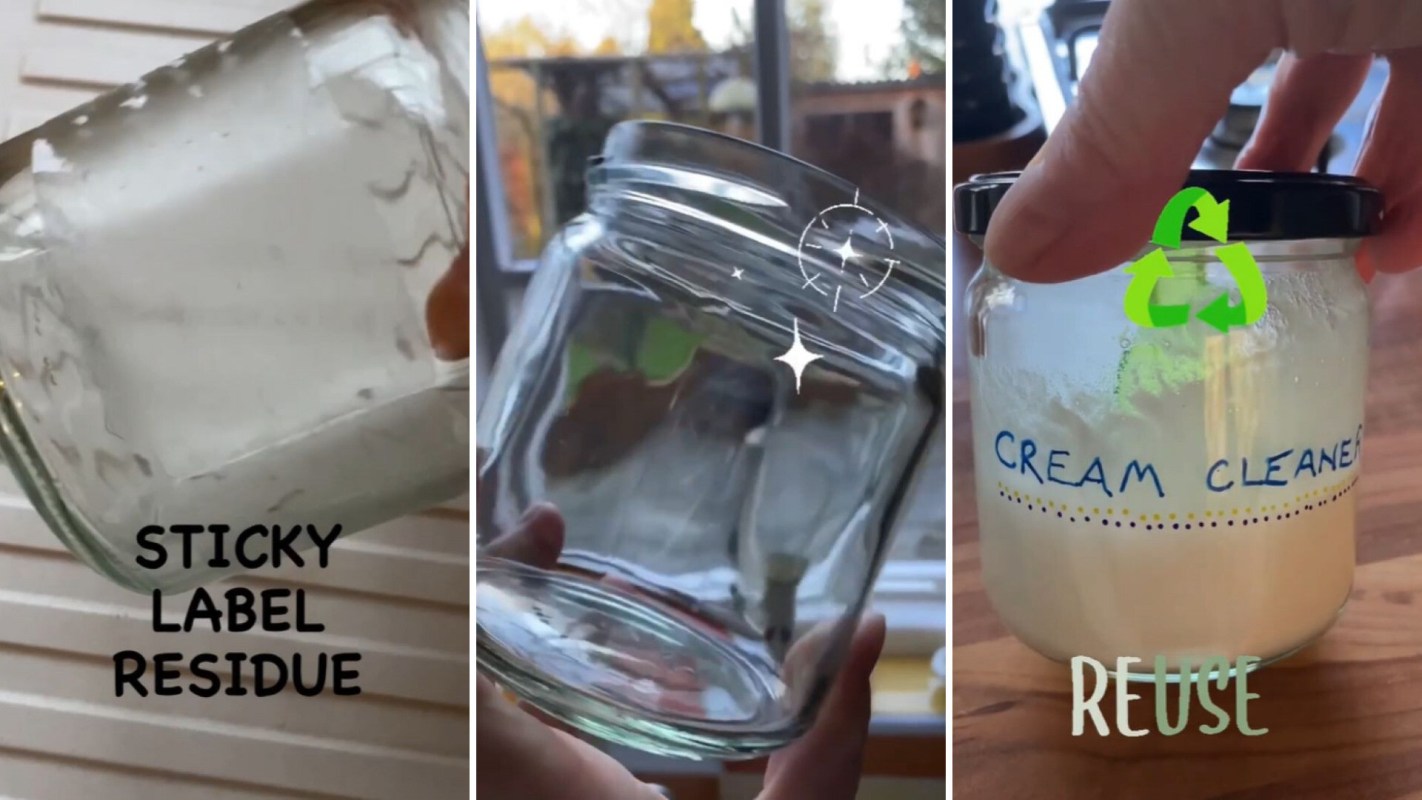Reusing glass jars is one of the easiest ways to recycle items in your own home without sending them to dedicated facilities.
They can be used for a range of things, such as keeping food, pickling, holding trinkets, or even as a vase if the jar is large enough.
But perhaps the most frustrating thing is the residue left from sticky labels. The jar might have an elegant shape or fun pattern, but the adhesive gunk that remains can be difficult to ignore.
Thankfully, Nancy Birtwhistle (@nancy.birtwhistle) — author of Clean and Green: 101 Hints and Tips for a More Eco-Friendly Home and winner of The Great British Bake Off in 2014 — has provided some tips to remove the glue on Instagram.
The scoop
Nancy's hack starts with rubbing the jar all over with some form of cooking oil, then applying bicarbonate of soda and working that into the glass, too.
When that's all done, leave the jar for between 15 and 30 minutes for the mixture to get to work.
Nancy says that the bicarb helps to collect the remnants of the label while removing the glue. When returning to the jar and giving it another rub, you can see the paper and glue slowly balling up and being removed from the glass surface until it feels smooth.
After washing the jar in soapy water, you're left with a clean, sparkling receptacle that is ready to be used again.
For a little extra flair and to help identify the items your jar will contain, Nancy writes on the glass using glass paint and then pops it in the oven to dry.
How it's helping
This simple hack helps you save money on buying new containers for the kitchen, bathroom, or other household items.
While glass is one of the most easily recyclable items in the world, ensuring it stays out of landfill sites will help to prevent the production of methane. The Environmental Defense Fund says methane has over 80 times more planet-warming potential than carbon dioxide in the first 20 years that the gas reaches the atmosphere.
Furthermore, Nancy's solution helps to avoid chemical solvents, which can create harmful ground-level ozone in the atmosphere that can produce smog and also impact human, plant, and animal health, per the Green Policy Institute.
Solvents can also cause skin irritation and rashes when put in contact with skin, and inhaling such products can cause respiratory problems, headaches, dizziness, and confusion.
Meanwhile, chemicals in solvents often don't break down naturally, polluting water and soil with harmful substances that can remain in the environment for years.
What's everyone saying?
"This is absolutely brilliant," one Instagrammer said. "Thank you! I just did this treatment on 3 stubborn sticky-labeled jars and they're as good as new!"
"It's magic!" wrote another user.
In addition to using on jars, one commenter found the oil-and-bicarb solution to be helpful on other items.
"I tried this on a stubborn label that came on our refrigerator, and it worked beautifully!" they said.
Join our free newsletter for easy tips to save more, waste less, and help yourself while helping the planet.









